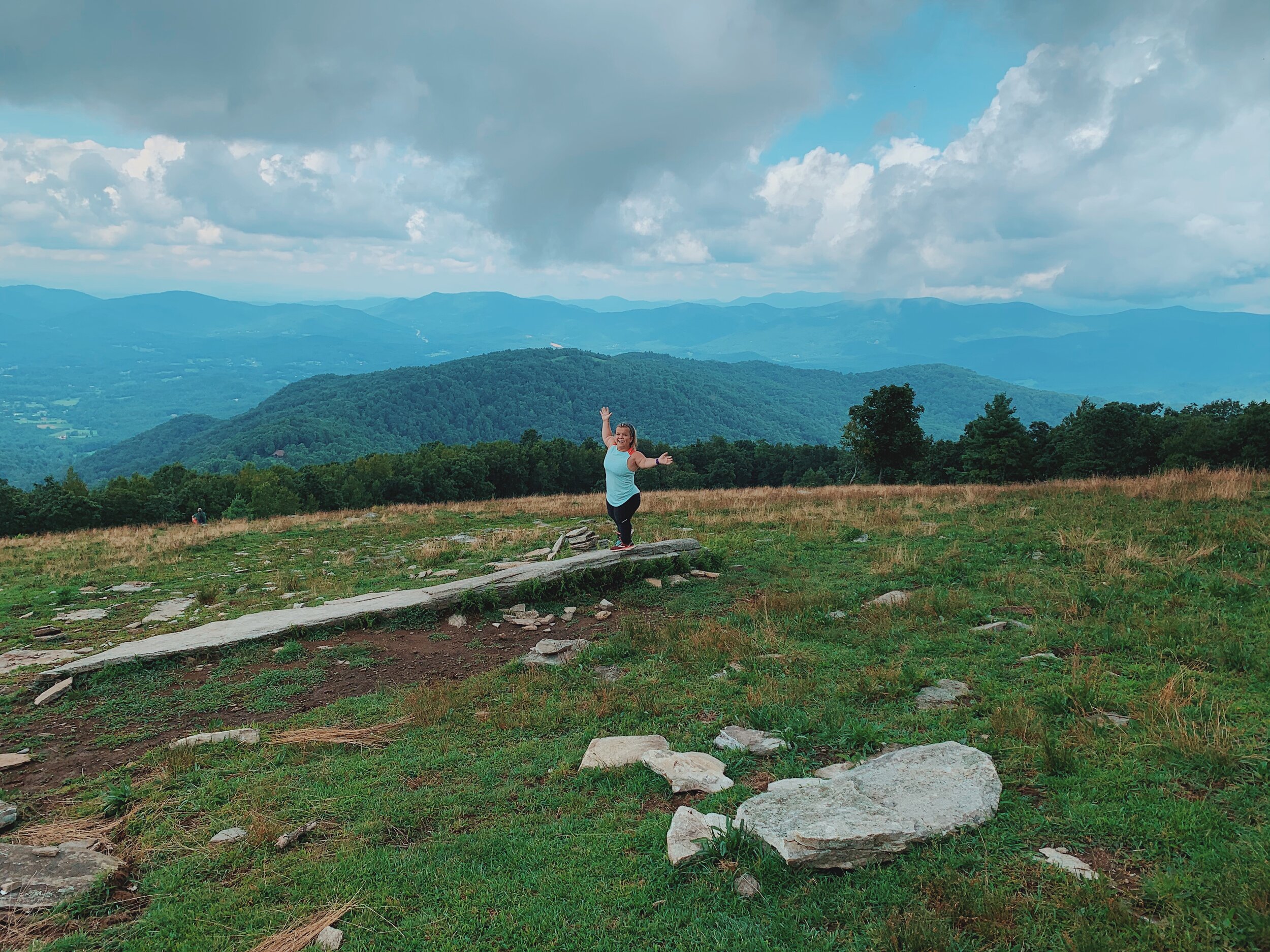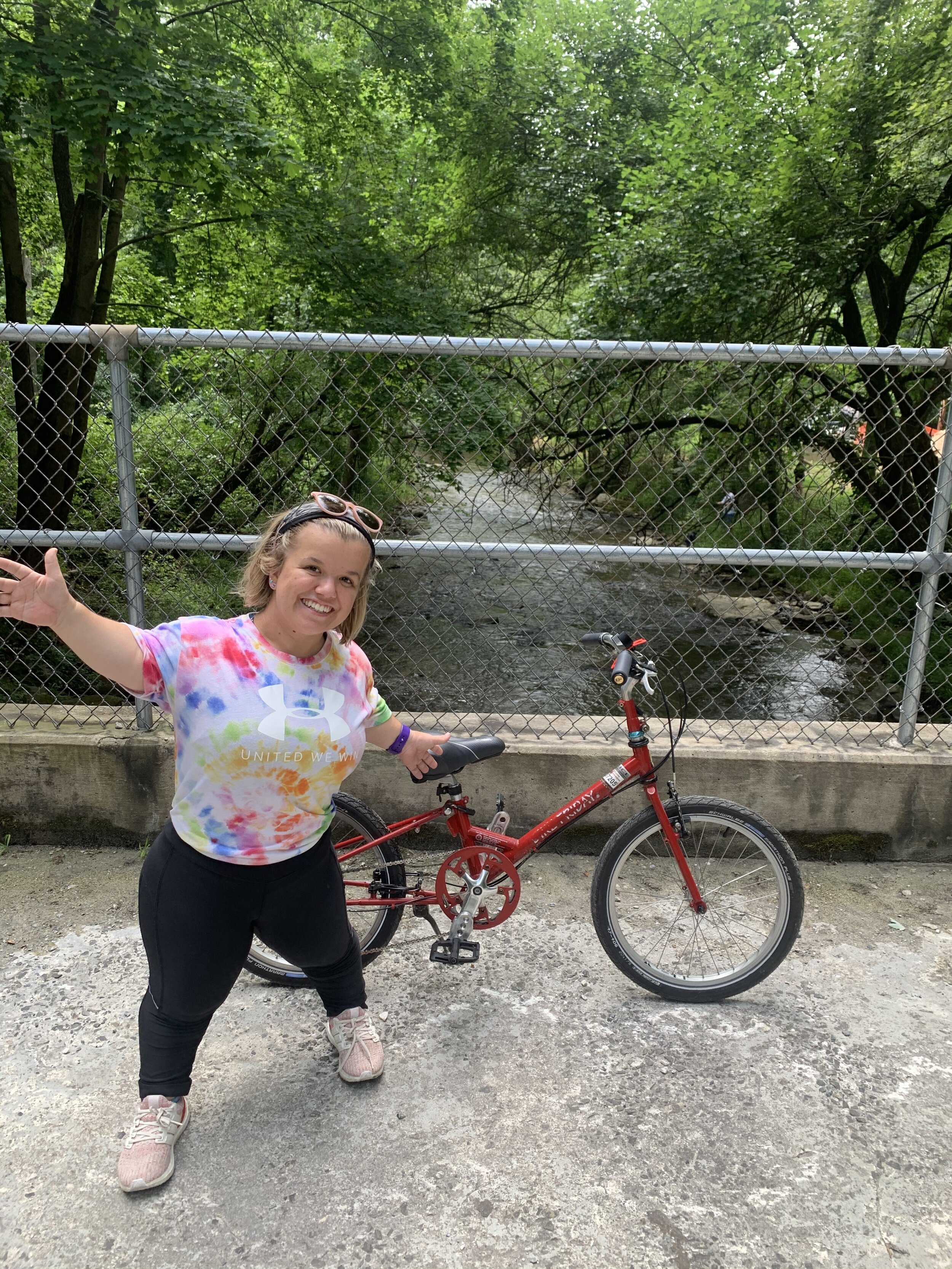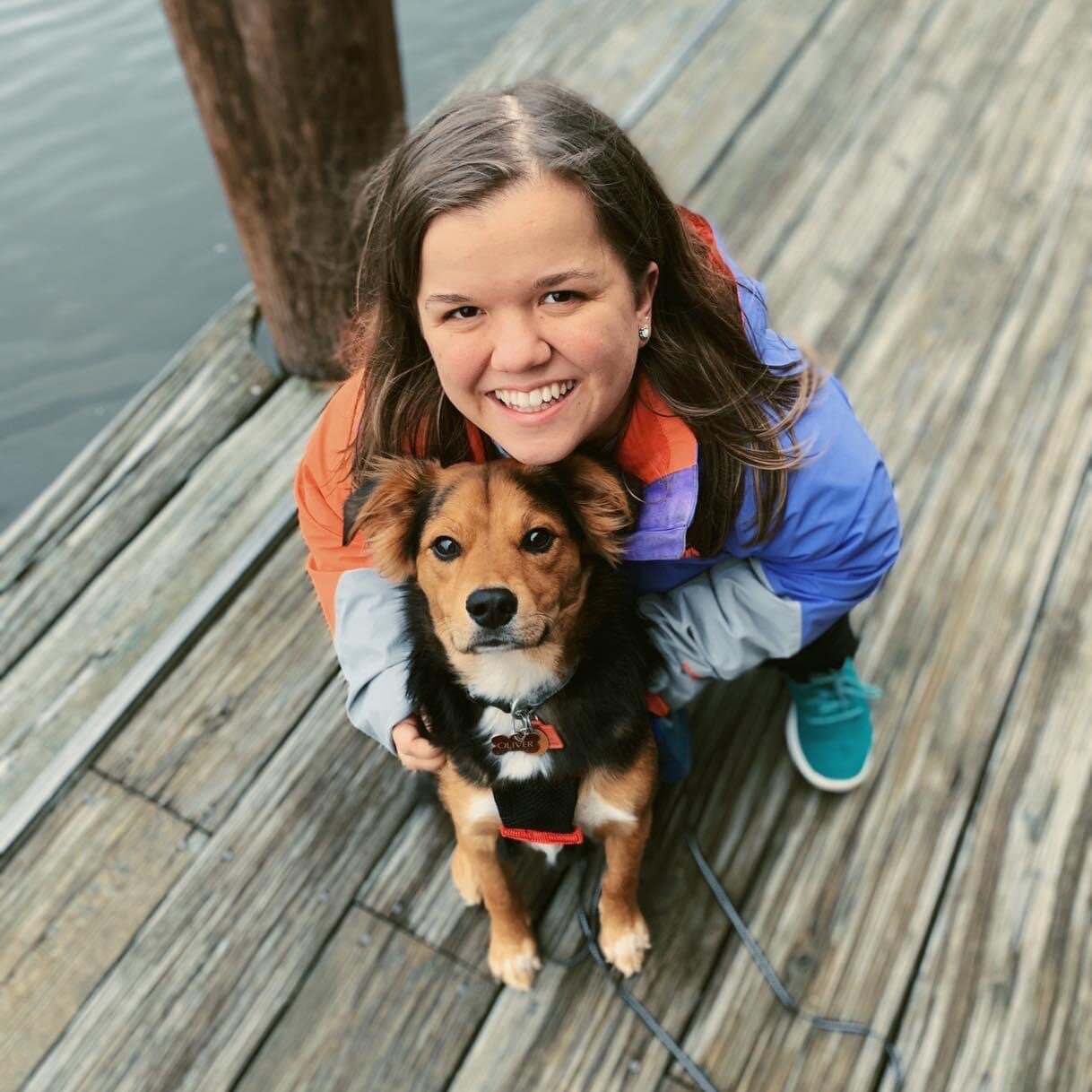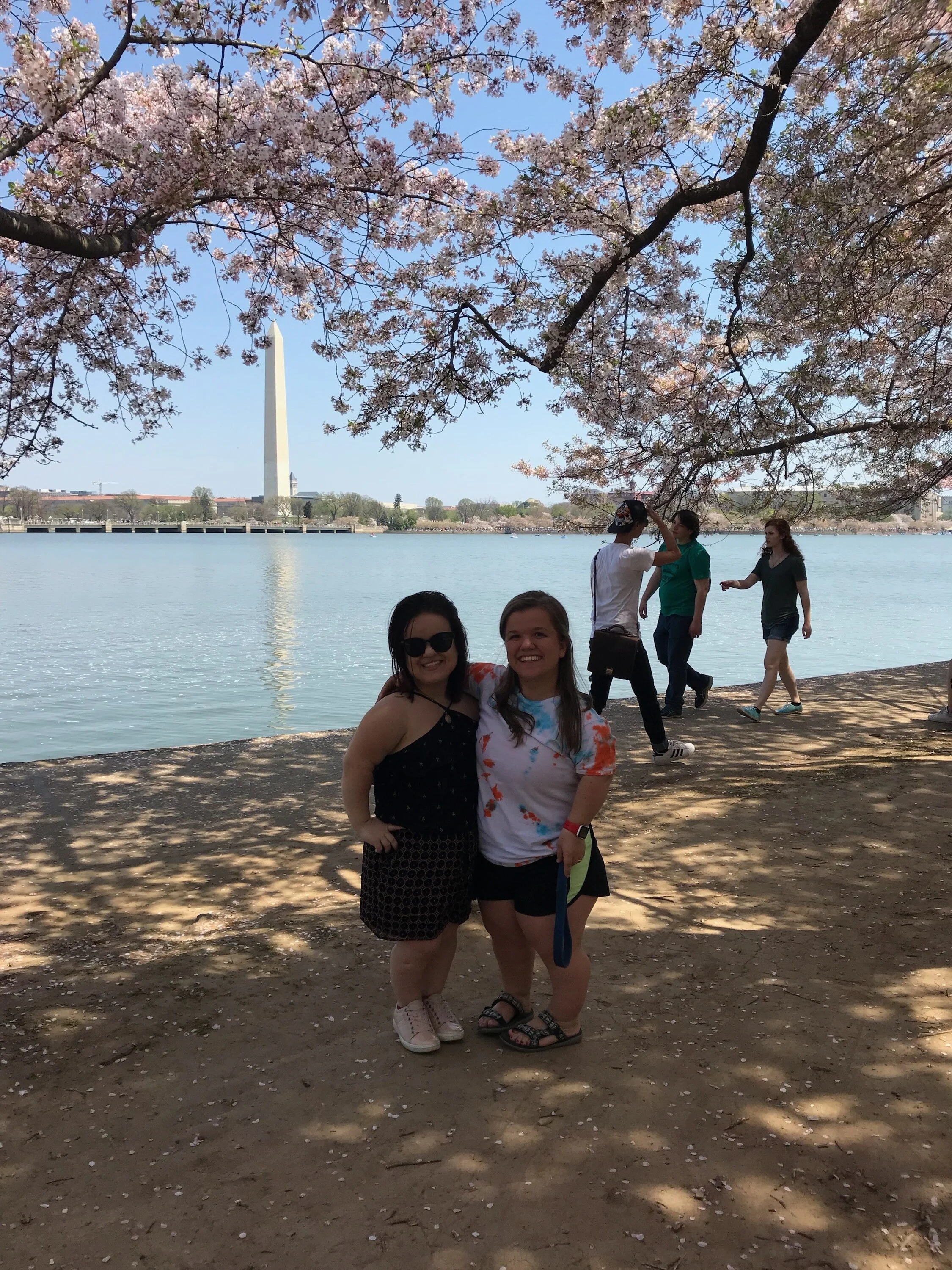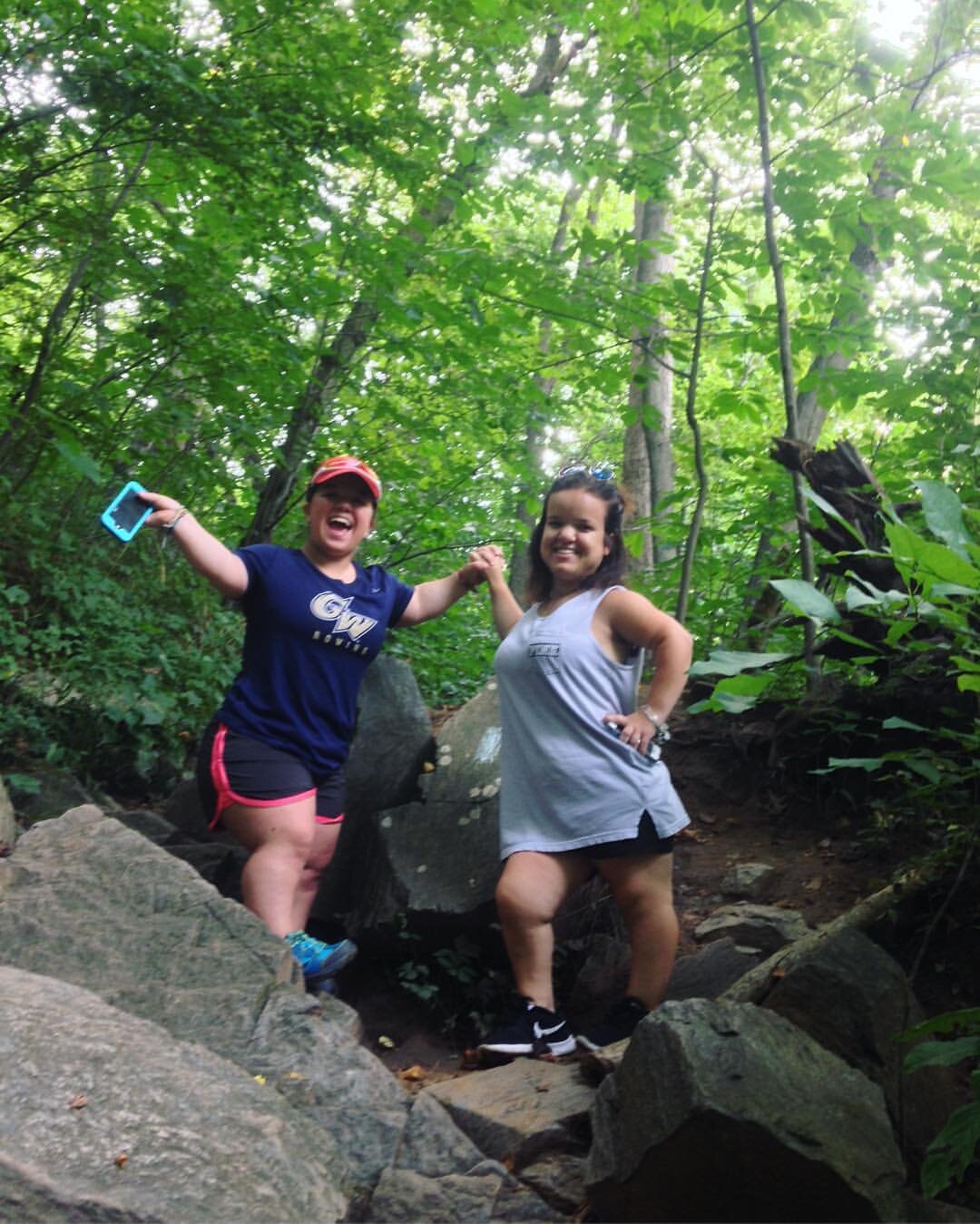Girl Talk: The Fitness and Wellness Industries
Believe it or not, I have a twin. Not in the literal sense, although we have fooled people many times before, but a best friend that, over the years, quickly became family. Her name is Lydia and we met fifteen years ago at an LPA national convention in Orlando and have been best friends ever since. Even while quarantined states away, we have been each other’s motivators on our fitness journeys and we recently sat down and discussed what health, wellness and fitness means to us.
Tell the readers a little bit about yourself.
I’m Lydia. I’m originally from D.C. and now live in Baltimore with my husband James. I have a dog, who I love, and am a 3rd year audiology student. *BURPS* Oh, keep that in there.
Growing up, what was the hardest part about being a little person? The easiest?
Physically, the hardest part was, after kindergarten, all your friends shot up in height. Now, they’re ten inches rather than five inches taller than you, and those five inches really made a difference. From then on I was always aware that I was different.
The best part is constantly defying my limitations- being presented with an obstacle and proving that I can do it. It may take me a different route, but I always get there.
What medical complications, if any, did you face?
None. Ear tubes once, no surgeries.
What does fitness and wellness mean to you?
Fitness and wellness means being at a point in your life, in your health, where you are happy where you are. I think a lot of fitness and wellness is 40% physical and 60% mental because you can work out and be as “healthy” as possible, but if you’re not happy or satisfied where you are, you’ll never achieve what you want.
Describe your fitness journey:
My fitness journey started with one idea of fitness and wellness and has completely changed into another. I was a Division I athlete at GW, competing as a coxswain on the rowing team. I was still active- got up early, biked to the boat house, lifted weights with my team (165 lbs squat). But, I never actively recorded or tracked how much I worked out in a week, that didn’t matter to me. When I started grad school, I think I took for granted how active I was during my undergraduate career. I found myself at the heaviest I had been and was not eating healthy (stress eating, desk job). After getting engaged, I wanted to get in shape for the wedding which was 18 months away. I heard from other little people (LPs) that Orangetheory Fitness (OTF) was accessible. I went to my first class and instantly fell in love. About six months in, it became so much less about what I weighed or what I looked like, and so much more about how I feel after class, what I am capable of doing after such as going on longer walks with my dog. OTF gave me the tools to work out on my own.
What exercise/fitness routine can you do that average-persons (APs) are surprised you can do?
I’ve never surprised people with a particular exercise I can do. I think I’ve had general encouragement that I’m able to walk out of a fitness class not looking completely defeated. I think that is the respect that everybody gets. Whether or not people are surprised because I’m an LP doesn’t really cross my mind because I, myself, am impressed. It’s more about the fact that people are happy to see people working out. Exercise spaces are generally white/able-bodied/cis-gendered and it’s nice to break the societal assumption of what fitness is supposed to look like.
Do you feel, as a dwarf, represented in the fitness and wellness industry? As a disabled person? Why or why not?
No and no. I feel very privileged in the way that, in addition to my disability, I have an efficient heart, legs that communicate well with my brain, and muscles that are able to grow. I feel privileged that I’m healthy enough and able enough to participate in these activities and I know there are other disabled people that don’t have the same privileges as I do. There is a fine line in yes, me showing up to fitness classes is breaking the stereotype as to what someone who does fitness looks like. At the same time, I’m one part of the community of disabled population that is not represented.
It’s a privilege that I can step on a treadmill that can fit my body and can use the arms that I’m given.
Just like there is a shift in body positivity for leggings and fitness apparel, I am still waiting to see that shift towards disabled people as well.
Do you feel represented in the body positivity movement? HAES? Why or why not?
Yes, because I think that body size doesn’t discriminate. You can be disabled and fat, average-sized (AP) and fat, disabled and skinny, and anything in between. It doesn’t discriminate. A reason why my mindset shifted from how I look in photos or what I look like on a scale is because I’m pretty curvy but I’m also really fit and seeing that you can have both has made me feel better about maintaining the body I have now and being happy with it.
Where do you buy your workout clothes / sneakers?
My most Brooks (running sneaker), I bought from a running store in Baltimore. I buy my leggings from Under Armour and I still wear clothes I got from Nike when I was on the rowing team. I also buy capri-length leggings from Fabletics and LuLuLemon. I don’t have trouble buying shirts and can get them from various brands and stores.
What are the biggest challenges you face when buying workout clothes/sneakers? (Challenges related to sizing)
I definitely buy only capri. Honestly, the most annoying part I have with buying pants is the sizing scale. I have a big butt and a tiny waist- the perfect in-between with a small and a medium. At some places I’m a small and at others a small is not going to fit. I don’t really have a problem with shirts. Tricky part with online shopping is that I always have to ask the question “Is it going to fit?”.
When gyms were open, what barriers did you face when trying to work out? Physical? Social?
I’m intimidated by weight machines. I don’t know where to start because that wasn’t introduced to me. I can’t lower a squat rack nor can I adjust anything that’s too high up such as a cable machine. I would just walk right by it. I can use most cardio machines, except the spin bike.. I stopped going to OTF as often, choosing to go to the gym more in order to have more diversity in my workouts. Now, I work out on the first floor gym of my apartment building where there is one weight machine and if I can reach it, I use it. If not, then I don’t.
I would never ask for help because I hate asking for help. I would love to have a trainer or someone there to be able to adjust the equipment without having to ask.
Should gym equipment be covered under the ADA?
Yes. There should be accessible gym equipment required in all gyms because fitness should be accessible to everyone. Inaccessibility is a big deterrent to people working out. The equipment shouldn’t be isolated but, at the same time, no one else should be using it. I just wish that, as a whole, the way we treated accessible things was more respected and taken seriously as a society.
There are some companies that do make handicap-accessible gym equipment. Why do you think gyms don’t have them for the patrons? For example, I’ve only seen the arm bike and not in every gym I’ve belonged to.
They fill up their space with what people would normally use first.
What would you say to a company like Peloton or Soul Cycle that does not make accessible equipment for neither in studio nor at home use?
They’re not going to change it for just one person. LPA could and should work something out with Peloton to develop a smaller version of their bike. They could make 10,000 or so and sell them at national conventions and expos.
It’s important to note that it is not as simple as just lowering the bike seat, you have to make proper adjustments. For example, on the bike I use I still have to use pedal cranks in order to use my bike effectively and safely. Could they get pedal cranks attached? Yes of course, but it’s not the only fix. It would be cool if advocacy groups could work with fitness companies to make equipment more accessible. Plus we are one faction of people with disabilities who can’t work out.
Are there workouts/wellness trends that you want to try but feel you are excluded from because you are an LP?
Yes. As someone who has their own bike and the Peloton app, I would love to be able to see my stats more. I feel that bodyweight exercises are a great way to start but they are high impact (a lot of jumping) and it is good to have a low-impact option. Fitness trainers and influencers should always have it in the back of their mind “How do I make this workout more inclusive for everybody?”
Who inspires you? Who do you follow?
One of my favorite parts about OTF is the community, I follow a lot of people that I met there. I think that when fitness is welcoming to whomever wants to join, is judgment free, and people are motivated to go, those are the best influencers. They are the best people to follow. I really enjoyed getting to know people who enjoy doing the same thing I do.
What are the changes you would like to see in the fitness/wellness community?
I think influencers in the fitness industry like to give off a perception that they are 100% healthy all the time. I just wish that they had a little more candidness about their relationship with food. I wish those influencers encouraged their followers who are on a fitness/wellness journey that eating is good for you; you can eat pasta and a donut and it’s not going to kill you. But, I think because they want to maintain an image they only let people see through a small lens what they actually do. I don’t think it’s fair to take a picture of your salad but hide your glass of wine. It gives off a false perception as to what it takes to be fit and healthy. I’m saying that you can eat within your means and things that you enjoy and workout and be healthy.
I also don’t like that, at Peloton for example, there are not a lot of differences in body type amongst their instructors. It is all about sports bras and abs. Once again, it goes with the influencer image. I think Lizzo is a great person to follow because she posts videos of her working out and of her eating. I mean, she is so fit to conduct her concerts, she dances really well. At the same time, she’s fat and she knows it and loves it. She likes the relationship that she has with her body and food and it is people like that we should follow.
Are there any questions you felt I haven’t asked that you want to answer?
I think a good question is “How do people get started?” because you and I are in a fitness LP group and a lot of people are asking that question. Yes, I think that being more aware of your portion control is important. Do I think you should count calories right away? Absolutely not. But, I think that everyday, do more than you did the day before. Start by walking just for ten minutes, then twelve, then fifteen. People need digestible, small goals that can lead them to a bigger overarching goal (lose weight, more motivated, walk longer). You don’t know what your big goal is until you start. The most important thing is to just get started, it doesn’t have to be complicated. And, if you need to take a rest day, take a fricken rest day.

